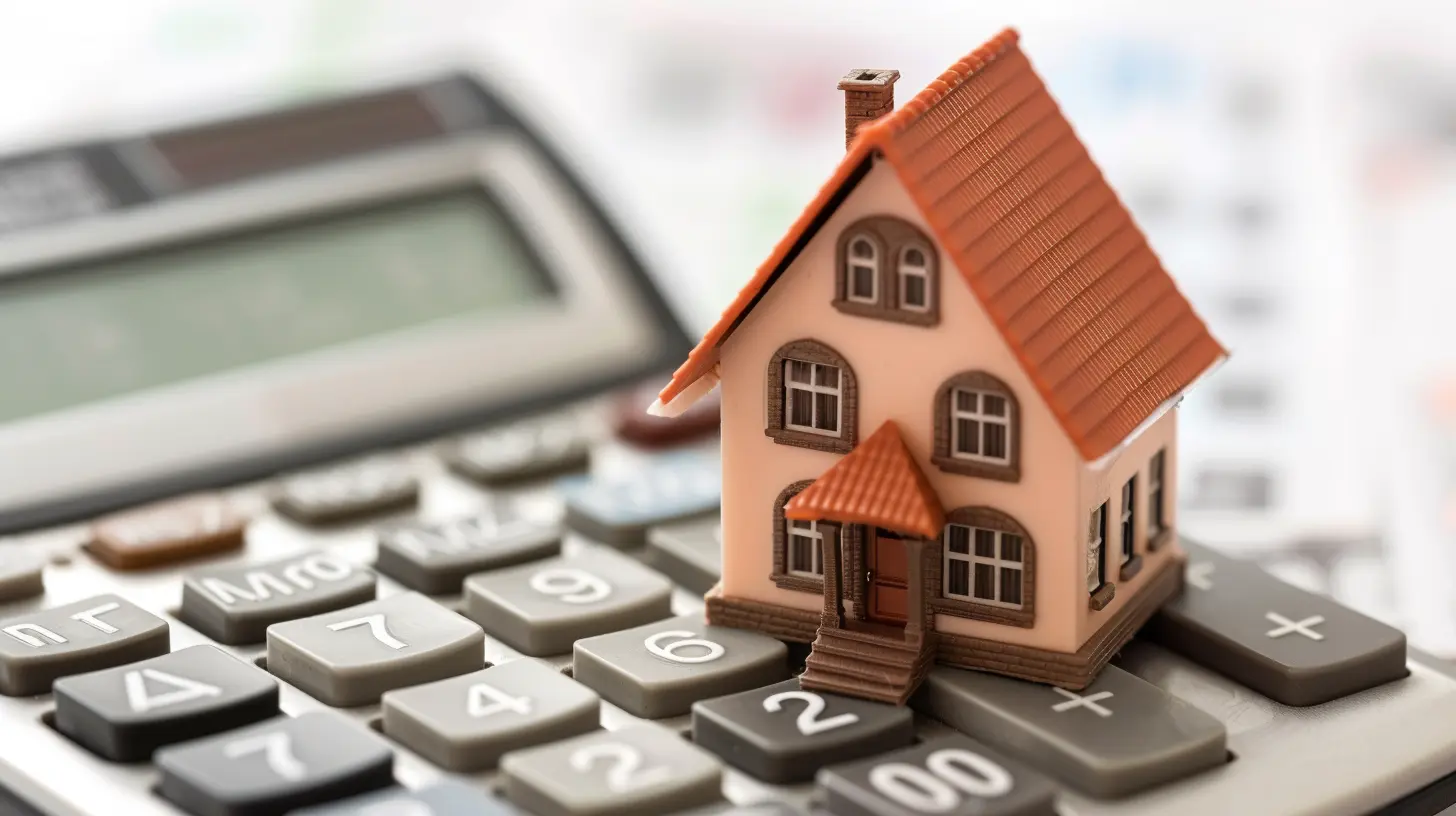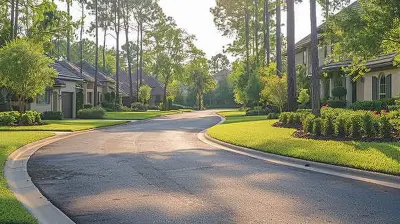17 February 2025
Buying a home is no small feat—it’s an emotional rollercoaster filled with excitement, anxiety, and a fair share of paperwork. But let’s be real: nobody dreams about the nitty-gritty details, like property taxes, when they’re scrolling through Pinterest boards of their future dream home. Yet, understanding property taxes is a giant step toward being a savvy homebuyer.
If the words “property taxes” make your eyes glaze over, don’t worry—you’re not alone. But here's the thing: these taxes are unavoidable, and knowing how they work can save you from some nasty surprises down the road. So, buckle up! We’re about to simplify the topic of property taxes and arm you with the knowledge you need to make smarter home-buying decisions. 
What Are Property Taxes?
First things first, what exactly are property taxes? Think of them as your “landlord fees” if your landlord was the government. Property taxes are annual payments you make based on the assessed value of your home and the local tax rate. These funds go toward public services like schools, roads, police, and fire departments—basically the stuff that keeps your community running smoothly.But here’s the catch: property taxes can heavily depend on where you live. Moving to a different state or even just a different county can mean a radically different tax bill. So, when budgeting for a home, don't just focus on the sticker price—factor in those sneaky property taxes too. 
Why Do Property Taxes Matter for Homebuyers?
You might be thinking, "Okay, so property taxes exist. Big deal. I'll just pay them." Well, hold up! Before you write them off as just another expense, consider how they can impact your home-buying journey:1. Affecting Affordability: Let's say you’ve found your dream home. It fits your budget, the neighborhood is great, and you’re ready to make an offer. But wait—what about the property taxes? If the taxes are sky-high, they can push your monthly payment way beyond what you’re comfortable with.
2. Escrow Accounts: Most mortgage lenders require you to pay property taxes into an escrow account. This means your taxes will be bundled into your monthly mortgage payment. Sounds convenient, right? But it also means a bigger chunk of your paycheck goes toward your home every month.
3. Resale Value: High property taxes can scare off future buyers if you ever decide to sell. Nobody wants to buy into a house where the taxes feel like a second mortgage. 
How Are Property Taxes Calculated?
Alright, now let's dive into the math (don’t worry—we’ll keep it simple).Property taxes are calculated like so:
Taxable Value x Tax Rate = Property Taxes
1. Taxable Value
The taxable value of your home is usually calculated by your local tax assessor. It’s often based on your home's market value but can vary depending on state laws.For example, some states assess properties at full market value, while others might only tax you on a percentage of it.
2. Tax Rate (a.k.a. Millage Rate)
The tax rate, often referred to as the "millage rate," is set by local governments and expressed in mills, where 1 mill equals $1 for every $1,000 of taxable value.So, let’s say your home’s assessed value is $300,000, and your local millage rate is 20 mills. Your annual property tax would be:
($300,000 ÷ 1,000) x 20 = $6,000
Boom—there’s your tax bill. 
How to Research Property Taxes Before Buying
You wouldn’t buy a car without checking the gas mileage, right? Treat property taxes the same way. Here’s how you can investigate:1. Ask Your Agent
Your real estate agent is your best resource here. They know the ins and outs of the local market and can give you a ballpark figure on what to expect regarding taxes.2. Check the Local Tax Assessor's Website
Most counties have online tools where you can look up property tax records. All you need is the property address, and voilà—you can see the tax history and even an estimate of future taxes.3. Talk to Current Homeowners
If you’re eyeing a specific neighborhood, local homeowners can give you the lowdown. They’ll tell you if the taxes have skyrocketed recently or if there are any upcoming proposals that might hike them up.Tax Breaks and Exemptions You Should Know About
Let’s talk about the silver linings. Depending on where you live, you might qualify for property tax exemptions or deductions that can lower your bill. Here are some common ones to keep on your radar:1. Homestead Exemption
If you’re buying a home to live in (rather than rent out), you may qualify for a homestead exemption. This reduces the taxable value of your home, directly lowering your property taxes.2. Senior or Veteran Discounts
Are you a senior citizen or a veteran? Many states have special programs that offer property tax relief for these groups.3. Energy-Efficient Homes
Some areas reward homeowners who go green. If your home has solar panels, energy-efficient windows, or other eco-friendly features, you could snag a tax break.How to Plan Ahead for Your Property Taxes
So, how do you avoid getting blindsided by property taxes? Here are a few pro tips:1. Factor Taxes Into Your Budget
This sounds obvious, but many first-time buyers only focus on the mortgage when calculating affordability. Don't forget to include property taxes in your monthly budget.2. Stay Updated
Property taxes aren’t fixed—they can fluctuate based on changes in your home’s value or local tax rates. Keep an eye on local government announcements to stay in the loop.3. Consider Tax Trends
If you're moving into a developing neighborhood with rapid property appreciation, keep in mind that higher home values often lead to higher tax bills.What Happens If You Don’t Pay Property Taxes?
Skipping out on property taxes isn’t an option. If you don’t pay, the local government can place a lien on your home, making it difficult to sell or refinance. In extreme cases, you could even face foreclosure.When it comes to property taxes, ignorance isn’t bliss—it’s expensive.
Wrapping It Up
Navigating property taxes may not be the most thrilling part of buying a home, but it’s one of the most important. Think of it like reading the fine print in a contract—it’s not glamorous, but it saves you a ton of headaches later.By doing your homework, asking the right questions, and planning ahead, you can make sure property taxes don’t put a crimp in your home-buying dreams. After all, buying a home is one of the biggest investments you’ll ever make—why not go into it as prepared as possible?










Skylar Lewis
Buying a home? Don’t forget to budget for your new best friend—property taxes! They’re like that extra slice of cake you didn’t plan for, but suddenly, it’s on your plate. Just remember, you can’t eat it—only pay it! 🍰💸
April 8, 2025 at 12:10 PM